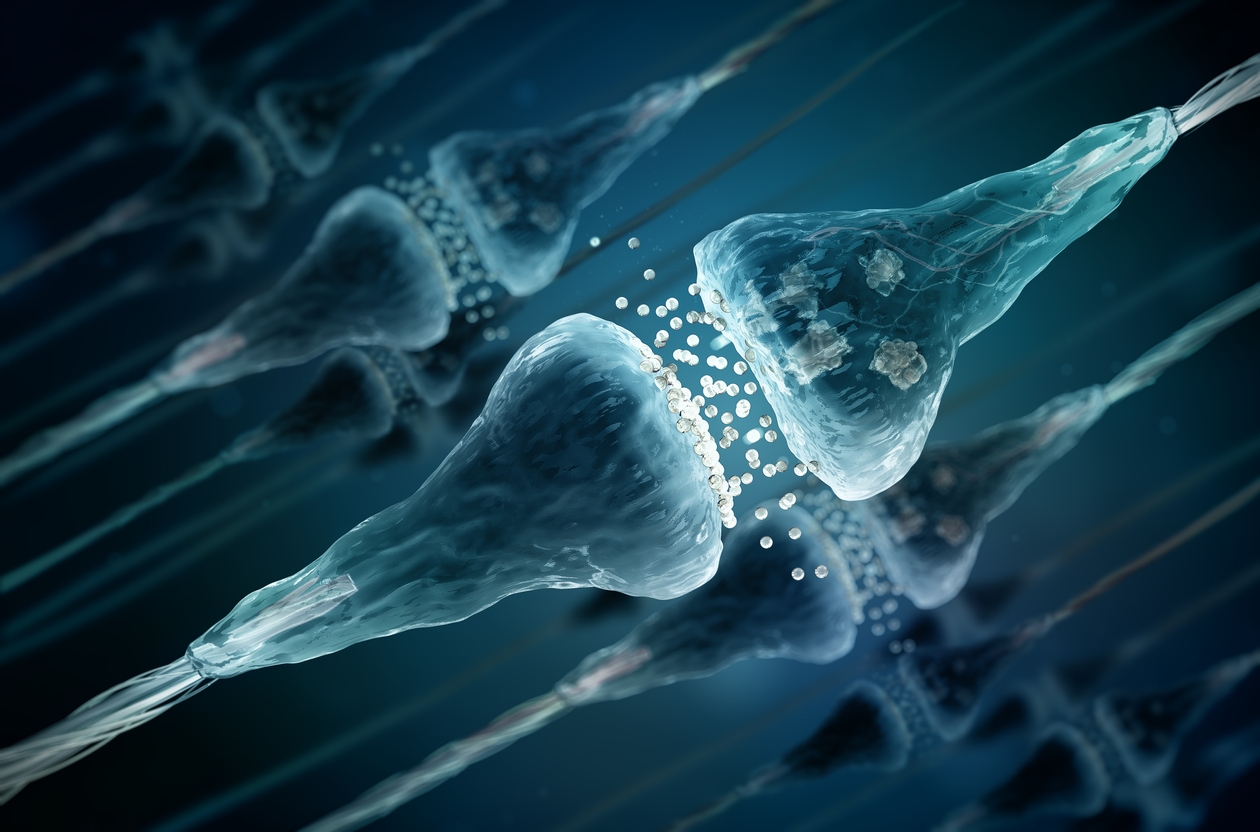Forgetting is a common yet enigmatic facet of human memory that has intrigued scholars and thinkers for generations. It is a cognitive phenomenon that occurs when information, memories, or learned material fade away or become inaccessible to our conscious. It represents the natural and sometimes inevitable process of losing, or at least temporarily misplacing, what we have acquired or experienced. Far from being a simple matter of memory lapse, forgetting presents a complex interplay of neurological processes, cognitive shifts, and emotional dynamics.
Understanding forgetting is crucial for making sense of the intricate workings of human memory. It allows us to comprehend the limitations and vulnerabilities inherent in our cognitive processes. This post delves into the nature of forgetting, encompassing its definition, underlying mechanisms, and the significance of comprehending this aspect of memory.
Theories Behind Forgetting
The nature of forgetting has spurred several compelling theories, each offering unique insights into why information might slip from our memory. [1] These theories provide a structured framework for grasping the intricate processes involved in the human memory system.
| Theory | Description |
| Circuit Remodeling Theory | Proposes that forgetting is linked to the rewiring and reorganization of neural circuits in the brain as new information is learned, resulting in the weakening of older connections. |
| Interference Theory | Suggests that forgetting occurs when new information competes with or interferes with our ability to retrieve older memories, causing confusion and suppression of information. |
| Decay of Memory Trace Theory | Postulates that the mere passage of time can lead to the fading or weakening of memories if they are not accessed or rehearsed regularly, emphasizing the importance of regular cognitive exercise and retrieval. |
Circuit Remodeling Theory
The Circuit Remodeling Theory suggests that forgetting is intricately linked to the rewiring and reorganization of neural circuits in the brain. According to this theory, as we learn new information, these neural connections adapt and change. In the process, older connections weaken, and information may fade as a result. This theory highlights the dynamic nature of memory and the brain’s capacity to adapt to new experiences.
Interference Theory
Interference Theory maintains that forgetting occurs when new information competes with or interferes with our ability to retrieve older memories. This interference can lead to the confusion and suppression of information, making it difficult to recall. It underscores the importance of both proactive interference (past information affecting new learning) and retroactive interference (new information impacting past learning) in understanding memory.
Decay of Memory Trace
The Decay of Memory Trace theory postulates that the passage of time can lead to fading or weakening of memories. According to this theory, if a memory is not accessed or rehearsed regularly, the neural pathways supporting it may deteriorate, rendering the memory less accessible. Decay of memory trace theory underscores the need for regular cognitive exercise and retrieval to maintain memory strength.
The Biological Mechanism of Forgetting
Forgetting is not just a cognitive process; it is deeply rooted in the intricate biology of the brain. To understand the biological mechanisms of forgetting, we have to delve into the roles of neurons and their connections. We’ll also look at the transition of engram cells, which are central to memory formation and recall.
| Mechanism | Description |
| Role of Neurons and Synapses | Forgetting is associated with changes in the strength of connections (synapses) between neurons, impacting memory retention. |
| Transition of Engram Cells | Engram cells, responsible for memory storage, undergo changes that may result in the weakening or interference of memories over time. |
Role of Neurons and Their Connections
Neurons are the fundamental units of the brain’s communication network. They also play a pivotal role in the biological mechanism of forgetting. The connections between neurons, known as synapses, facilitate the transmission of information within the brain.
Forgetting is often associated with synaptic plasticity, a process in which these connections change in strength. [2] Over time, these changes can weaken the neural pathways associated with specific memories, contributing to forgetfulness.
The Transition of Engram Cells
Engram cells, often referred to as memory traces, are a key element in the biological foundation of memory. [3] These cells store the neural representation of memories. The transition of engram cells, marked by the weakening of synaptic connections or the remodeling of neural circuits, is a fundamental process underlying the act of forgetting. As new memories are formed and existing ones are recalled, engram cells may be modified, leading to the decay or interference that characterizes forgetting.
Psychological Aspects of Forgetting
Forgetting extends beyond the realm of biology and cognition, delving into the psychological intricacies of human memory. The psychological aspects of forgetting encompass the impact of negative self-concept, defensive forgetting, and the influence of stress and depression on memory processes.
| Aspect | Description |
| Negative Self-Concept | Low self-esteem and self-doubt can impact memory retention, influencing an individual’s confidence in remembering. |
| Defensive Forgetting | A psychological mechanism where individuals consciously or unconsciously alter or suppress memories to avoid emotional discomfort or cognitive dissonance. |
| Stress and Depression Effects | High stress levels can impair memory retrieval, and depression may lead to the formation of negative memory biases, influencing overall memory processes. |
Negative Self-Concept and Its Impact
Negative self-concept, characterized by self-doubt and low self-esteem, is a psychological factor that can influence memory retention. When individuals possess a negative self-concept, they may doubt their capacity to remember accurately. This self-doubt can lead to an increased likelihood of forgetfulness, as they may question their ability to recall information. The link between self-concept and memory underscores the significance of emotional well-being in memory processes.
Defensive Forgetting
Defensive forgetting is a psychological mechanism wherein individuals consciously or unconsciously suppress or alter memories. This mechanism is often employed to shield oneself from emotional discomfort, cognitive dissonance, or distressing recollections. [4] It may involve the deliberate avoidance of memories that are perceived as distressing or conflicting. Defensive forgetting highlights the emotional preservation aspect of memory processes, as emotions play a substantial role in the formation and suppression of memories.
Stress, Depression, and Their Effects on Memory
Stress and depression are emotional states with a notable impact on memory processes. High levels of stress can impair memory retrieval, making it challenging to recall stored information accurately. [5] Depression, on the other hand, may lead to the formation of negative memory biases. Individuals with depression may have a tendency to remember negative experiences more vividly while downplaying positive ones.
Aging and Memory
Aging is a natural and inevitable part of the human experience, and it has a profound impact on memory processes. Let’s see how aging affects memory retention and the brain’s tendency to prioritize gist over specifics.
How Aging Affects Memory Retention?
As individuals age, various changes occur in memory processes. [6] Some memory functions may decline, particularly with regards to the recall of specific details. Older individuals may experience challenges in remembering names, dates, and fine details. However, other memory aspects, such as semantic memory (knowledge about the world), remain relatively stable or even improve. Recognizing these age-related changes is important for adapting memory strategies and promoting cognitive health in older adults.
The Brain’s Prioritization of Gist Over Specifics with Age
One intriguing aspect of aging and memory is the brain’s tendency to prioritize gist, or the core meaning and broader context of information, over specific details. This cognitive shift can be adaptive, as it allows older adults to focus on essential information while minimizing cognitive load. However, it can also lead to the omission of finer details, highlighting the complex interplay between cognitive changes and memory with age.
Exploring how aging influences memory retention and the brain’s inclination to emphasize gist over specifics provides insights into the intricacies of memory in later life. It underscores the importance of recognizing and adapting to these changes to support cognitive health as individuals age.
External Factors Influencing Forgetting
Beyond the intrinsic workings of the brain and psychology, external factors exert notable influence on memory processes. An exploration of these factors encompasses the consequences of lack of sleep, the side effects of specific medications, and the role of dietary influences on memory.
Impact of Lack of Sleep
Lack of sleep can significantly affect memory. The brain consolidates and organizes memories during deep sleep. Insufficient sleep disrupts this crucial process, disrupting the consolidation of memories. [7] It may impair both short-term and long-term recall, leading to increased forgetfulness, reduced attention span, and difficulties in memory retrieval. The importance of adequate and restful sleep is paramount in memory preservation. However, if you have the short sleep gene, lack of sleep won’t affect your memory much.
Side Effects of Medications
Certain medications, while beneficial for specific health conditions, may have side effects that impact memory. [8] Some drugs, particularly those affecting the central nervous system, may muddle memory functions. Awareness of these potential side effects is essential for individuals and healthcare professionals in managing overall health and cognitive well-being.
Dietary Influences on Memory
Diet also plays a role in cognitive health, and specific nutritional choices can influence memory functions. Nutrients like omega-3 fatty acids, antioxidants, and vitamins play a role in brain health and memory. [9] But diets with high saturated fats and sugars may have negative effects. Acknowledging the connection between dietary choices and memory helps understand the significance of nutrition in preserving cognitive abilities.
Methods to Counteract Forgetting
While forgetting is a natural aspect of memory, there are strategies to counteract its impact and enhance memory retention. [10] Recognizing the importance of rehearsal and contemplation, as well as employing techniques to strengthen memory retention, can significantly contribute to optimizing memory performance.
Importance of Rehearsal and Contemplation
Regular rehearsal and contemplation are foundational strategies for memory enhancement. Actively engaging with the material to be remembered, such as reviewing information, summarizing key points, or mentally reflecting on the content, can reinforce memory encoding and retrieval.
Techniques to Strengthen Memory Retention
Several techniques exist to bolster memory retention. These include:
| Technique | Description |
| Spaced Repetition | Distributing the review of information over time, allowing for more effective encoding and retrieval. |
| Visualization | Creating mental images related to the content, aiding in memory recall by providing a visual context. |
| Association | Linking new information to existing knowledge or creating mnemonic devices to facilitate memory retrieval. |
| Note-Taking | Actively writing down key information, reinforcing memory through engagement with multiple sensory channels. |
| Mind Mapping | Organizing information in a visual format, using branching structures and keywords to represent concepts and relationships, enhancing memory and comprehension. |
| Mnemonic Devices | Using memory aids, such as acronyms or rhymes, to create associations that facilitate easier recall. |
| Chunking | Grouping information into smaller, manageable chunks, making it easier to remember and retrieve. |
Techniques, such as spaced repetition, association, and chunking offer avenues to bolster memory retention, so that essential information is not lost to the passage of time. Mind mapping not only helps visualize ideas, but also provides effective strategies for individuals to actively engage with information and optimize encoding. Thus, enhancing their ability to retain and recall memories.
Conclusion
Understanding what happens when we forget involves an exploration of biological, psychological, and external dimensions. While biological mechanisms elucidate the intricate workings of neurons and engram cells, psychological aspects highlight the role of self-concept and emotional well-being. Given the multifaceted nature of memory and forgetting, we should also analyze the impact of external factors such as lack of sleep and medication side effects.
These further underscore the dynamic interplay shaping our memory. Implementing effective memory retention techniques empowers individuals to actively manage forgetfulness. These techniques serve as a foundation for optimizing memory performance and fostering cognitive well-being.





